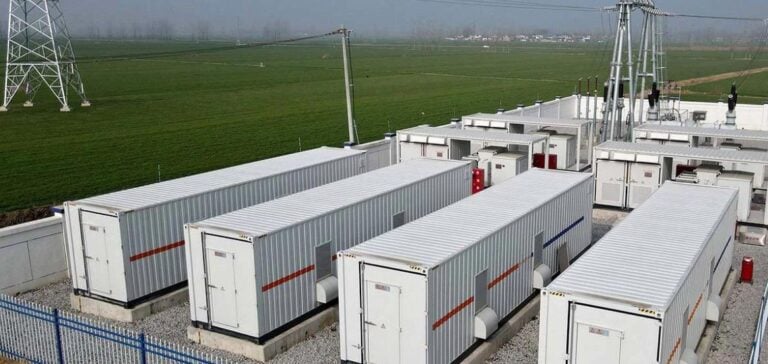Sumitomo Corp, one of Japan’s trading giants, has announced plans to significantly increase its battery energy storage capacity in Japan from the current 9MW to 500MW by March 2031. This initiative aims to mitigate fluctuations in renewable energies and improve the efficiency of the national energy system. Japan is also innovating to accelerate its energy transition, as demonstrated by the operation of the JERA power plant.
Increasing the use of renewable energies is crucial for resource-poor Japan to achieve its decarbonization goals and improve energy security. Storage batteries play a key role in regulating the intermittent supply of solar and wind energy sources.
Sumitomo’s energy transformation strategy
Sumitomo’s battery energy storage program is part of a broader energy transformation strategy. According to Shigenobu Hamada, head of the company’s energy storage unit, “We aim to contribute to the stabilization and decarbonization of the power system by developing and operating large-scale battery storage.”
Sumitomo also plans to develop a competitive business model by leveraging its proprietary operating systems, and is considering overseas investments to expand this business. Battery storage capacity in Japan is set to grow from 2GWh in 2023 to 40GWh by 2030, while worldwide capacity is set to rise from 190GWh to 2,206GWh. Japan has set itself ambitious targets, and is making every effort to achieve them.
A booming market
Battery energy storage is expanding rapidly worldwide, led by countries such as China and the USA. However, Japan is still lagging behind due to smaller price differences in the wholesale electricity market, making it difficult for storage developers to generate profits.
Nevertheless, the Japanese market is set to take off thanks to government support and institutional changes, such as the development of a market for the adjustment of electricity supply and demand. Sumitomo has already installed three energy storage facilities, including a 6MW plant in Chitose, on the island of Hokkaido, near the chipmaker Rapidus’s factory site.
Sumitomo plans to select sites from among 1,700 potential locations to add new battery storage facilities. These efforts underline the company’s commitment to playing a leading role in Japan’s energy transition.
The expansion of battery energy storage is not only essential for the stability of the power grid, it is also a key element in the country’s decarbonization strategy. Investment in this technology will ensure a more reliable and sustainable energy supply, by harmonizing periods of production and demand.
In this way, Sumitomo continues to position itself as a major player in the global energy landscape, adapting to technological developments and the growing need for clean energy.





















